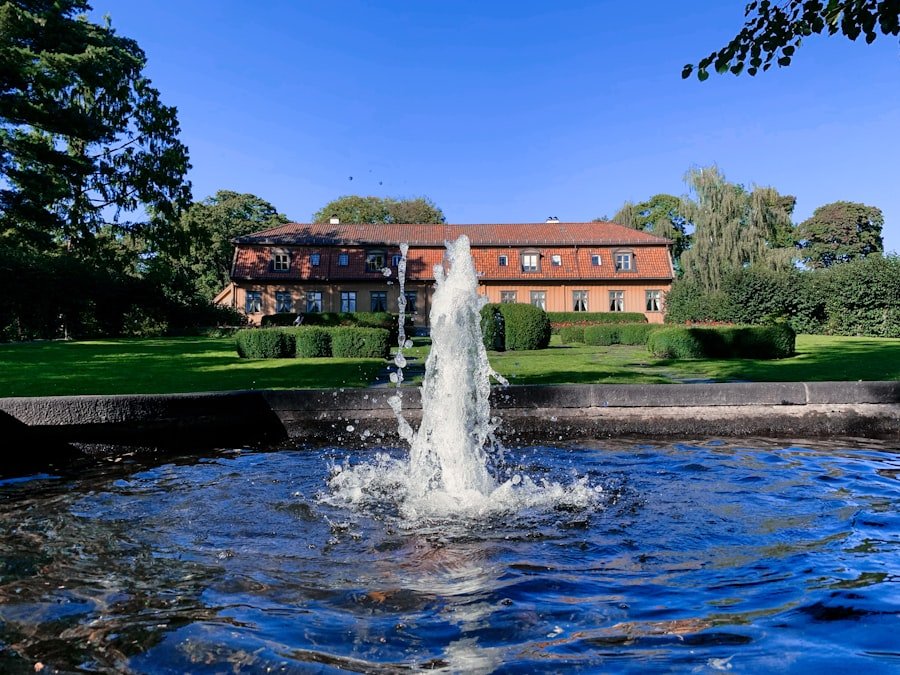

Why Knowledge of Norwegian Society is a Prerequisite for a Permanent Stay in Norway
Norway is a country rich in cultural heritage, characterized by its unique blend of traditions, values, and social norms. At the heart of Norwegian culture lies a strong emphasis on egalitarianism, which manifests in various aspects of daily life. This value system promotes the idea that all individuals are equal, regardless of their social status or background.
Consequently, Norwegians tend to be modest and reserved, often avoiding ostentation in both personal and professional settings. Understanding this cultural norm is essential for anyone looking to integrate into Norwegian society, as it shapes interactions and expectations. Another significant aspect of Norwegian culture is the concept of “Janteloven,” or the Law of Jante, which discourages individual success and promotes collective well-being.
This unwritten rule encourages people to be humble and to avoid boasting about personal achievements. As a newcomer, recognizing and respecting these cultural values will not only help you navigate social situations more effectively but also foster deeper connections with the local community. Engaging with the Norwegian Social Studies test preparation course at the NLS Norwegian Language School can provide valuable insights into these cultural norms, equipping you with the knowledge needed to thrive in your new environment. Master the material with expert help. Sign up for the Social Studies Test preparation course at the NLS Norwegian Language School.
Table of Contents
ToggleKey Takeaways
- Understanding the cultural norms and values is essential for successful integration into a new community.
- Navigating social etiquette and customs can help build positive relationships and avoid misunderstandings.
- Adapting to the work environment may require learning new communication styles and professional expectations.
- Accessing the healthcare system is crucial for maintaining physical and mental well-being in a new country.
- Integrating into the education system can provide opportunities for personal and professional growth.
Navigating the Social Etiquette and Customs
Social etiquette in Norway is characterized by a blend of formality and informality, which can be somewhat perplexing for newcomers. Greetings are typically straightforward, with a firm handshake being the norm when meeting someone for the first time. Eye contact is important, as it conveys sincerity and respect.
However, once a relationship has been established, interactions tend to become more casual, with first names often used among friends and acquaintances. Understanding these nuances in social customs is crucial for building rapport and fostering friendships in Norway. Dining etiquette also reflects Norwegian customs, where punctuality is highly valued.
Arriving on time for social gatherings or meals is seen as a sign of respect. When invited to someone’s home, it is customary to bring a small gift, such as flowers or chocolates, as a token of appreciation. Additionally, table manners are generally formal; waiting for the host to begin eating before starting your meal is expected.
Engaging in the Norwegian Social Studies test preparation course at the NLS Norwegian Language School can help you grasp these social etiquettes more thoroughly, ensuring that you feel confident and comfortable in various social settings.
Adapting to the Work Environment

The Norwegian work environment is known for its flat organizational structure and emphasis on teamwork. Hierarchies are less pronounced than in many other cultures, which fosters open communication and collaboration among colleagues. This egalitarian approach encourages employees to voice their opinions and contribute ideas, regardless of their position within the company.
For newcomers, adapting to this work culture may require a shift in mindset, particularly if you come from a more hierarchical background. Work-life balance is another cornerstone of the Norwegian work environment. Employees are encouraged to maintain a healthy balance between their professional and personal lives, with generous vacation policies and parental leave provisions.
Understanding this aspect of Norwegian work culture is essential for newcomers who may be accustomed to longer working hours or less flexible schedules. The Norwegian Social Studies test preparation course at the NLS Norwegian Language School can provide valuable insights into workplace expectations and norms, helping you navigate your new professional landscape with ease.
Accessing the Healthcare System
Norway boasts a comprehensive healthcare system that is publicly funded and accessible to all residents. Understanding how to navigate this system is crucial for newcomers who may be unfamiliar with its structure and processes. The healthcare system operates on a principle of universal coverage, meaning that all citizens and residents have access to necessary medical services without incurring significant out-of-pocket expenses.
This system is funded through taxes, which may be a departure from healthcare models in other countries. To access healthcare services in Norway, individuals must register with a general practitioner (GP) who serves as their primary care provider. It is essential to familiarize yourself with this process, as GPs play a pivotal role in coordinating care and referring patients to specialists when needed.
Additionally, understanding your rights and responsibilities within the healthcare system will empower you to make informed decisions about your health. The Norwegian Social Studies test preparation course at the NLS Norwegian Language School can equip you with essential knowledge about navigating the healthcare landscape effectively.
Integrating into the Education System
Norway’s education system is known for its high standards and emphasis on inclusivity. Education is compulsory for children between the ages of 6 and 16, and schools focus on fostering critical thinking and creativity rather than rote memorization. For newcomers with children, understanding how to integrate into this system is vital for ensuring a smooth transition.
Schools in Norway often encourage parental involvement, so being proactive in engaging with teachers and school activities can enhance your child’s educational experience. Moreover, language proficiency plays a significant role in a child’s success within the Norwegian education system. For non-Norwegian speakers, enrolling children in language support programs can help them acclimate more quickly to their new environment.
The Norwegian Social Studies test preparation course at the NLS Norwegian Language School can provide valuable resources for parents seeking to understand the educational landscape better while also supporting their children’s language development.
Engaging with the Legal System

Navigating Norway’s legal system can be daunting for newcomers unfamiliar with its structure and processes. The legal framework in Norway is based on principles of equality and justice, ensuring that all individuals have access to legal representation and fair treatment under the law. Understanding your rights and responsibilities as a resident is crucial for avoiding potential legal pitfalls.
In addition to familiarizing yourself with civil rights and obligations, it is essential to understand specific legal processes that may affect you as an immigrant or resident. This includes matters related to immigration status, employment rights, and property ownership. Engaging with local legal resources or seeking guidance from professionals can help demystify these processes.
The Norwegian Social Studies test preparation course at the NLS Norwegian Language School can also provide insights into legal norms and practices in Norway, empowering you to navigate this complex landscape confidently.
Participating in the Political Process
Norway prides itself on its democratic values and active citizen participation in the political process. As a resident or citizen, understanding how to engage in this process is vital for making your voice heard. Voting is not only a right but also a responsibility that allows individuals to influence decisions that affect their lives and communities.
Newcomers should familiarize themselves with the electoral system, including how elections are conducted at various levels—local, regional, and national. Additionally, understanding political parties and their platforms can help you make informed choices during elections. Engaging with community organizations or attending local political meetings can also provide valuable insights into current issues and initiatives within your area.
The Norwegian Social Studies test preparation course at the NLS Norwegian Language School can offer essential information about Norway’s political landscape, ensuring that you feel empowered to participate actively.
Utilizing Social Services and Support Networks
Norway offers a robust social welfare system designed to support residents in various aspects of life, including housing, employment, and family services. Understanding how to access these services can significantly enhance your quality of life as a newcomer. The welfare system aims to provide assistance to those in need while promoting social inclusion and equality.
For individuals facing challenges such as unemployment or housing insecurity, local municipalities offer various support programs tailored to specific needs. Additionally, community organizations often provide resources for newcomers seeking assistance with integration or social support networks. Engaging with these services can help you build connections within your community while accessing valuable resources that facilitate your transition into Norwegian society.
The Norwegian Social Studies test preparation course at the NLS Norwegian Language School can guide you through available social services, ensuring that you are well-informed about your options.
Embracing the Outdoor Lifestyle
Norwegians have a deep appreciation for nature and outdoor activities, which are integral to their way of life. The country’s stunning landscapes offer countless opportunities for hiking, skiing, fishing, and other outdoor pursuits throughout the year. Embracing this outdoor lifestyle not only promotes physical well-being but also fosters connections with nature and fellow outdoor enthusiasts.
Participating in outdoor activities can serve as an excellent way to meet new people while immersing yourself in Norwegian culture. Many communities organize outdoor events or clubs that welcome newcomers eager to explore their surroundings. Whether it’s joining a hiking group or participating in winter sports activities, engaging with nature can enhance your overall experience in Norway.
The Norwegian Social Studies test preparation course at the NLS Norwegian Language School may also highlight cultural practices related to outdoor life, helping you appreciate this vital aspect of Norwegian identity.
Recognizing the Importance of Family and Community
Family plays a central role in Norwegian society, where strong familial bonds are cherished and nurtured. Norwegians value spending quality time with loved ones, whether through shared meals or outdoor activities. Understanding this emphasis on family can help newcomers appreciate social dynamics within their communities.
Community involvement is equally important in Norway; many neighborhoods foster a sense of belonging through local events and gatherings. Engaging with your community can create opportunities for building friendships while also providing support networks during your transition period. Participating in local events or volunteering can deepen your connection to your new home while reinforcing the importance of community ties.
The Norwegian Social Studies test preparation course at the NLS Norwegian Language School can offer insights into family structures and community engagement practices that are prevalent in Norway.
Contributing to Environmental Sustainability
Norway is renowned for its commitment to environmental sustainability and conservation efforts. As a resident or newcomer, understanding this cultural value can inspire you to adopt eco-friendly practices in your daily life. Norwegians prioritize sustainable living through initiatives such as recycling programs, renewable energy sources, and conservation efforts aimed at preserving natural landscapes.
Engaging with local environmental organizations or participating in community clean-up events can provide opportunities for newcomers to contribute positively while connecting with like-minded individuals who share similar values regarding sustainability. Additionally, learning about Norway’s environmental policies can empower you to advocate for sustainable practices within your community. The Norwegian Social Studies test preparation course at the NLS Norwegian Language School may also cover environmental issues relevant to Norway’s culture, equipping you with knowledge that aligns with this vital aspect of life in Norway.
In conclusion, integrating into Norwegian society involves understanding its cultural norms, navigating social etiquette, adapting to work environments, accessing healthcare services, engaging with education systems, participating in political processes, utilizing social services, embracing outdoor lifestyles, recognizing family importance, and contributing to environmental sustainability. The Norwegian Social Studies test preparation course at the NLS Norwegian Language School serves as an invaluable resource for newcomers seeking guidance on these topics while fostering connections within their new communities.
Sign up for the Social Studies Test preparation course at the NLS Norwegian Language School.
If you want to learn Norwegian, you can register for classes here. We look forward to hearing from you and helping you become fluent in Norwegian.





